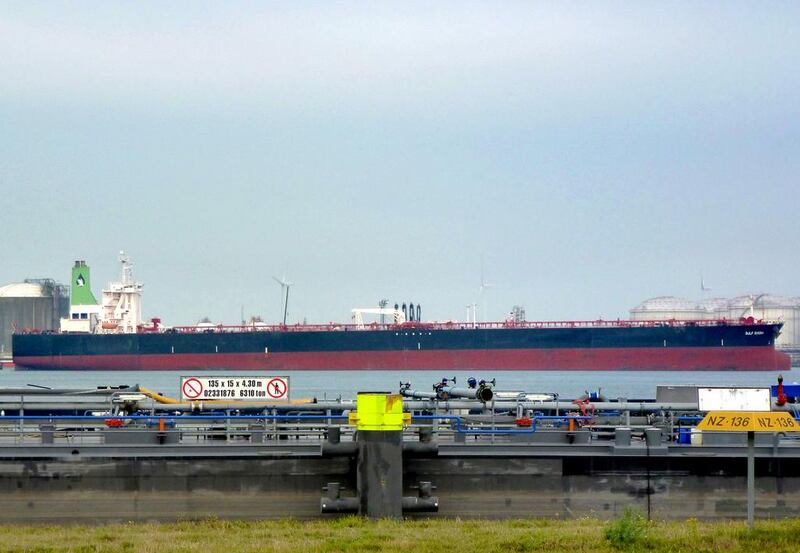Gulf Navigation has sailed into choppy waters, with one of its oil tankers forced to remain at anchor in Rotterdam pending its sale, under instruction from disgruntled creditors.
The Dubai-based company said on Monday that the Gulf Sheba had been arrested in the Dutch port while unloading its crude cargo. The arrest notice was served by the Norwegian bank DNB, an agent of the lenders for Gulf Sheba Corporation, a Gulf Navigation subsidiary, for default in repayment of interest and principal towards the end of July.
Gulf Navigation yesterday said it would hold a meeting of its board of directors on Friday to review the situation and to call an extraordinary general meeting for necessary shareholder approvals, giving no further details.
Rotterdam port authorities confirmed yesterday that the vessel – a very large crude carrier (VLCC) – was still at anchor in the port area.
The vessel was “arrested” last Friday, a company spokesman said, declining to give further details on what stage negotiations with creditors had reached.
While arrested vessels can be released in just hours if a letter of credit is presented to lenders, depending on the jurisdiction. But in more complicated situations vessels, can remain under arrest for many months, incurring port fees and putting a serious dent in a company’s revenue, said Robert Lawrence, a partner with Clyde & Co, specialising in shipping and international trade.
“If security is not arranged, a vessel would remain under arrest until the situation is resolved to the lenders’ satisfaction”, he said. “The lenders may feel that their best option is to ask a court to sanction a sale of the vessel so they can get some of their money back.”
In a statement to the Dubai bourse on Monday, Gulf Navigation said that it had been discussing proposals from prospective buyers of Gulf Sheba during the past few months. Any agreement to sell the vessel must be acceptable to its lenders and then must be submitted to its shareholders at an EGM for approval.
“It’s normally in the vessel owner’s interest to try and agree a private sale as opposed to the sale having to go through the court, as you’re likely to get a better price and the process is speedier, which means you’re not liable for as much in the way of port handling fees and the like,” said Mr Lawrence.
Gulf Navigation announced the purchase and delivery of Gulf Sheba in 2007 for US$110 million. The company may have to accept as little as half that amount if it wants to conduct a quick sale, one source said.
“The news about the ship arrest is already out there in the media, so if the company is in a really deep situation they may well have to go for a knock-down price,” he said.
The arrest of Gulf Sheba and its expected sale raise serious questions about Gulf Navigation’s future.
The company warned in its second quarter results presentation, issued last month, that it had defaulted on a loan instalment of $1.8m due in July. The company said that if it was unable to amend its loan terms or find other financing alternatives, it would be dependent on market-based asset values to repay its borrowings.
Gulf Sheba is one of two VLCCs owned by Gulf Navigation. The company also owns eight chemical tankers.
Gulf Navigation’s shares closed down 4.4 per cent at 29 fils.
jeverington@thenational.ae





